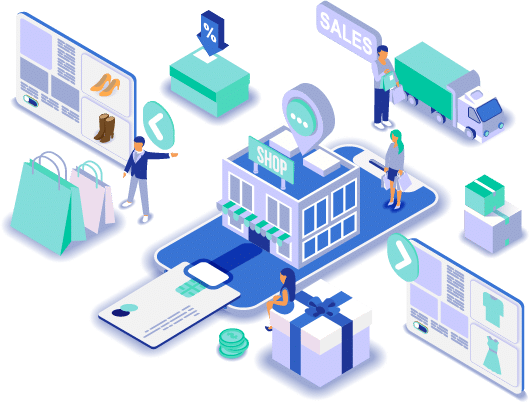I am a huge fan of Data Analytics, a field I was introduced to in 2021. I got hooked when I discovered that it was one of the top most sought-after skills globally. This was obviously buttressed by the fact that I have always loved data analytics. Over the years, I have always enjoyed putting reports by analysing data and drawing insights from them. Whenever I see any structure system, e.g. a retail business, I am always curious to know if the owner is big on collecting and analysing data. Every entrepreneur or business person must be passionate about data analytics.
The Importance Of Data In Any Retail Business
Most businesses suck at collecting and analysing data. How can you expect to grow as a business if you are not paying attention to data? Global unicorns such as Google, Facebook, Apple, and the like are big on data. Their success is anchored on their ability to collect and analyse data. That is why it has been said that they even know you more than you do. It is because they track all your online activity and build data points they use to understand you better. These are huge companies and have sophisticated tech, e.g. artificial intelligence, machine learning, and so on. However, the principle is the same no matter the case – it is about collecting data and analysing it.
A number of businesses have an idea of the principle but use it in a limited manner. Most businesses have simple frameworks they use to collect and analyse data. They take note of new stock arrivals and they record every sale made. Most do this by writing it down in some book and receipting. Their major thrust is usually to use those items and then to do stock takes. That is fair and fine but there is more to that than just that. Daily data collection can be used to understand your customers better. Let me give an example:
I have a buddy of mine resident in SA. He usually shops at Pick n Pay, using their Smart Shopper Rewards Card. Over time he noticed that they started giving him personalized discounts on stuff he buys most often. This demonstrates that Pick n Pay now has vast knowledge on what each customer buys, when they buy it, at what price, and using which payment method, amongst other things. Remember, it is all about the principle. Never mind that Pick n Pay is big and well-resourced; as a small business, you achieve such by simply improving your recording keeping. For example, ensuring your invoices are detailed can be enough to help you do data analytics.
There is something I mentioned on that Pick n Pay example you should enunciate further. I mentioned the Smart Shopper Rewards Card, which points to the importance of customer loyalty programmes. Such initiatives are great opportunities to collect extensive data that you can analyse. That is why Pick n Pay can easily offer personalized discounts because of the data it collects. Collecting and analysing data on loyal or repeat purchase customers is easier. I just had to the point that out so that you seriously consider rolling out customer loyalty programmes.
The Importance Of Going Digital
We have established that most businesses are still paper-based. Data analytics is much easier when you go digital. Let us suppose you take note of your sales transaction in a physical book. You can instead start making those entries into a spreadsheet on a laptop. That simple migration brings you closer to detailed data analytics due to Excel’s features you can use. If you are entering data on paper, you would have to re-enter it into a digital system in order to analyse it. Plus, with a digital approach, you can even make analyses in real-time. That is why you should go digital in your quest to do data analytics. Here are some tools or approaches you can use in data analytics for your retail business:
Data Analytics Tools You Can Use
Personally, I have studied the use of Microsoft Excel, Microsoft Power BI, and Tableau. At the most basic, you can effectively do data analytics using Microsoft Excel. Microsoft Excel is somewhat limited when it comes to the range and sophistication of data visualizations you can make. Plus, Microsoft Excel lacks data wrangling and reprocessing capabilities which entail a range of things such as cleaning data or remediating data – also referred to as data transformation. Power BI and Tableau are much more detailed in those respects.
The other tool you can use is to purchase off-the-shelf software – point of sale (POS) software usually. There is countless software you can purchase for use in running your retail business. Lots of brands use this approach where they buy readymade software to handle their sales activity. Mostly these software packages can give you summaries at the end of each day, e.g. sales volumes and gross profit, amongst others. You can also query the software to show you the most bought items, the customer with the most purchases, and the like over a period of time.
Another alternative is to hire a software developer to develop tailor-made software for you. It can be a web app, a mobile app, or desktop software. This can be the best option if your line of business is somewhat unique and has atypical data items to consider.
Some say data is the new oil. Others say the most valuable asset today is data. This all speaks of the staggering value data now has. There is no doubt about how data is changing or shaping this digital society. If you want to establish your retail business at the apex, you need to collect and analyse data. No more guesswork or assuming things. Be empirical by making evidence-based decisions or strategies. If you do that, you will provide the most exceptional customer experiences because you will know customers comprehensively.








